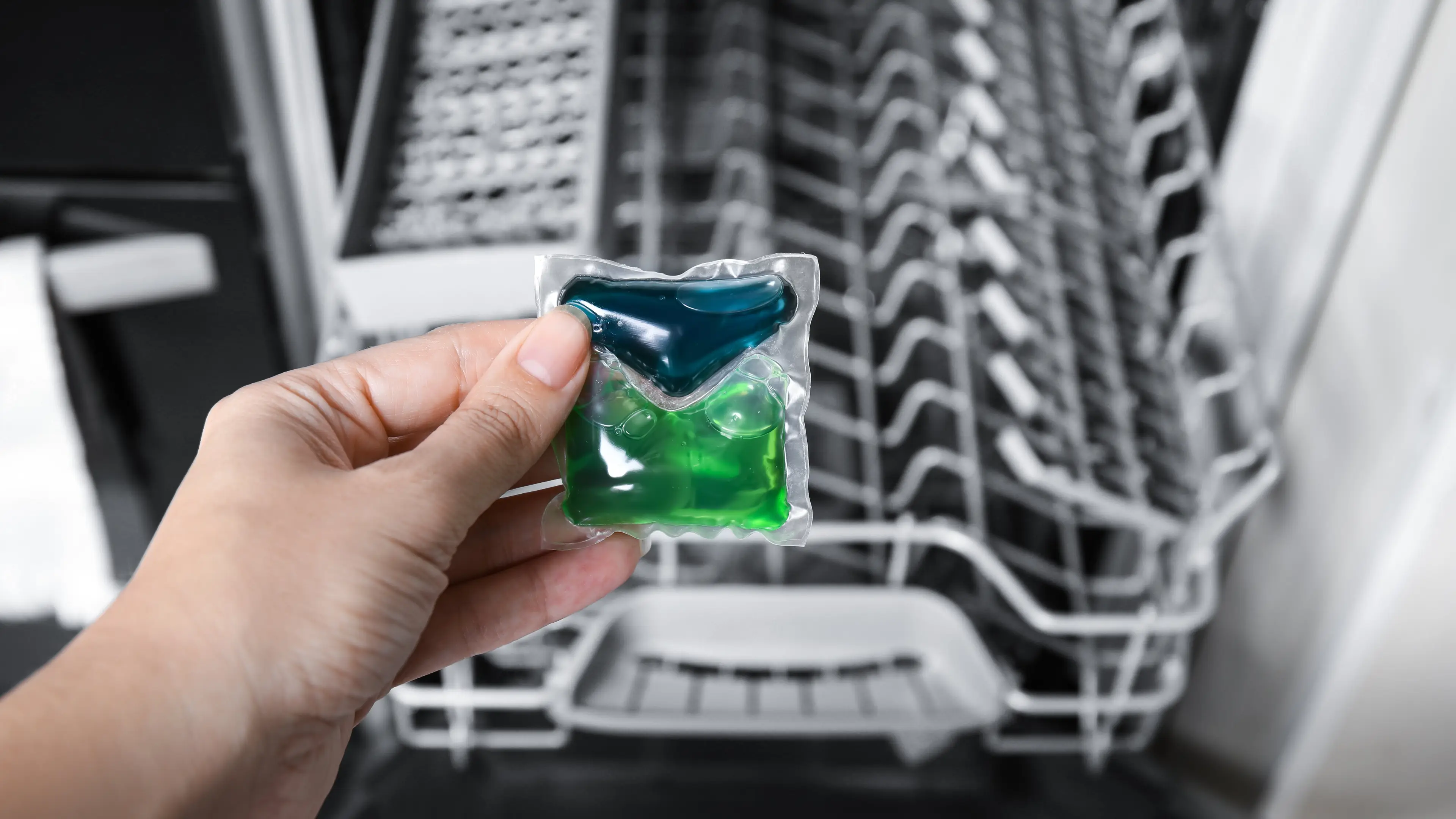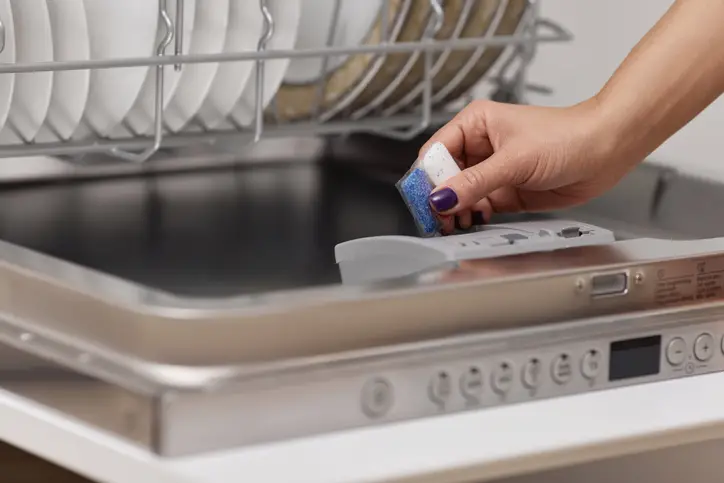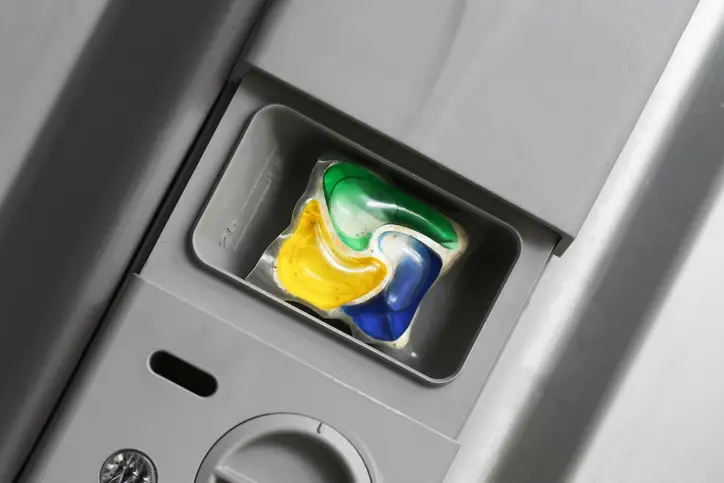
Dishwasher pods might seem like a silky, convenient shortcut in the kitchen, and they mean no messy scooping or spills, but the jury is out on whether they're truly 'safe'.
Coated with a plastic wrapper, they're caught up in the discussion of whether they have microplastics and could in fact be harmful for the environment and our bodies. The question is causing a disagreement among scientists, with some arguing that they might not be safe after all.
The wrapper around most dishwasher pods is made of polyvinyl alcohol (PVA), a plastic designed to dissolve in water. The idea being that you load up your dishwasher, toss one of the pods in to clean and once inside, they will dissolve and release the cleaning solution that brings our dishes out squeaky clean.

Advert
Many scientists and manufacturers believe that PVA isn't harmful in this, as it dissolves into the water and is also later cleansed away by microbes in wastewater treatment plants, eventually breaking down.
All of this sees PVA seen as safe in controlled laboratory studies. In 2021, Belgian researchers tested some PVA varieties and found they degrade completely in a matter of months, enough to reassure certain regulators and certifiers that dishwasher pods can be classed as 'low risk'.
In fact, dishwasher pods are approved by the US Environmental Protection Agency (EPA)’s program certifying safer products, called Safer Choice, and EWG’s Verified program.
However other researchers warn that the real-world conditions in water treatment systems and natural environments aren't the same as being in a lab. Wastewater facilities are engineered to handle pollutants and organic waste, not three-dimensional plastic films that morph into soluble compounds, so the difference could be huge.
Some evidence suggests that remnants of PVA could pass through treatment systems unchanged, enter rivers or oceans, and persist long enough to interact with ecosystems and even find its way into the human body.

Sherri Mason, a chemist and plastics pollution researcher at Gannon University, told Time.com: "To say it dissolves just means you can’t see it."
Mason argues that water treatment plants are designed to decontaminate solid and liquid waste only, not other chemicals in water, and this means the plastics are never really gone.
Christopher Kassotis, assistant professor and environmental toxicologist at Wayne State University in Michigan, also agreed as he claimed: "There’s certainly some evidence in the literature that the film doesn’t fully degrade."
So while scientists and researchers are debating whether dishwasher pods and PVA is safe, the real question is what could PVA do to the body?
According to some consumer reports, concerns remain about PVA’s biodegradability and its potential to release tiny plastic particles (microplastics) every time someone does laundry or runs a load of dishes in a dishwasher using a pod.
Topics: Health
